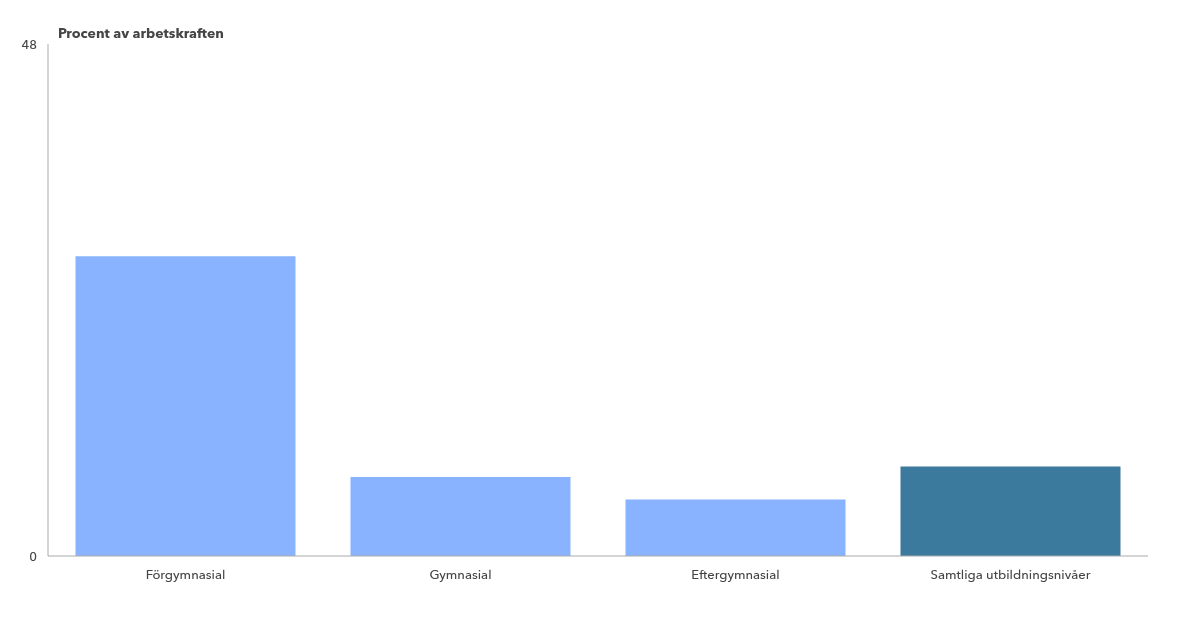TheTalisman
Ancient Mariner
The problem is not with space, it's that most parts of the swedish labour market has moved on from lowed-skilled workers a long time ago - that is where the real issue is.Sweden has a lot of space though.
And there's still lot of small towns around the country, with available housing, and with factories which haven't been moved over seas yet. But these type of companies do not demand much labour anymore, because production is mostly automated, as in most western countries. Most people employed in these places have at least 2 years of post secondary education now as well.
Where I live (in a city with 100 000 habitants), asylum immigrants who make it as far as to actually have a job mainly end up working with pizza delivery, housekeeping, driving cabs, or working in fast food places. Swedish government also pay 1/2 of the salary for immigrant workers for the first 6 months in employment, but this doesn't seem to help much.
Unemployment levels in 2020, were at the highest rate for people with a background in Africa, with 30 %. People born in Sweden had an unemployment level of just 5 % at the same time.

Arbetslöshet efter ursprung
Arbetslösheten bland utrikes födda är högre än bland inrikes födda.
Last edited:


